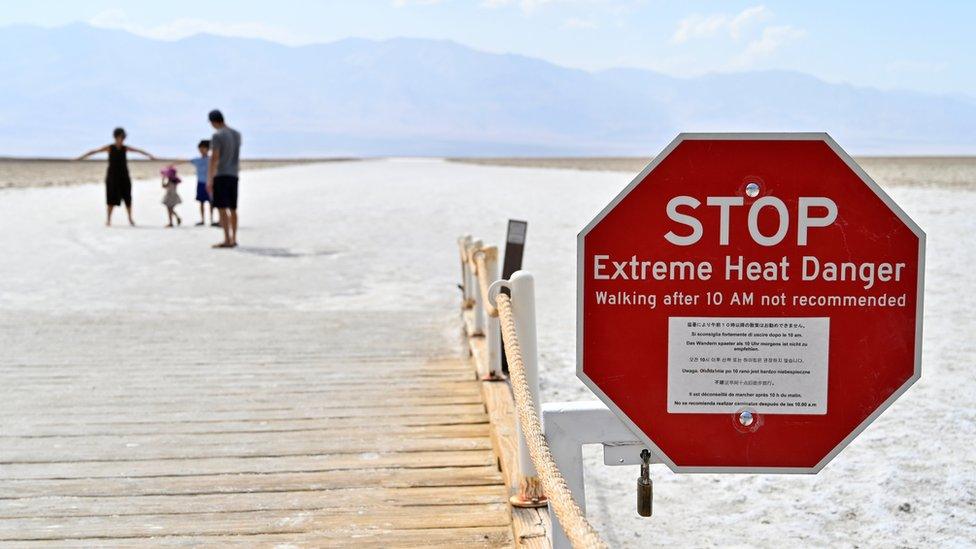Record June temperatures point to more 'extraordinary' extremes
- Published
- comments
Watch: Canadians say the conditions are "unbearable"
North America experienced its warmest June on record, according to the EU's Earth observation programme.
That will come as no surprise given the unprecedentedly high temperatures recently recorded during the heatwave that hit Canada and parts of the US.
But UK residents may be startled to learn that despite the rain and cloud they experienced, it was the second warmest June on record for Europe.
It was also the fourth warmest June ever recorded worldwide.
Copernicus, the EU's Earth observation programme, produces its figures for world temperatures from computer-generated analyses using billions of measurements from satellites, aircraft and weather stations around the world.
Climate experts say the findings point to a frightening escalation in temperature extremes.
"We are getting used to record high temperatures being recorded somewhere around the world every year now," says Prof Peter Stott of the UK Met Office.
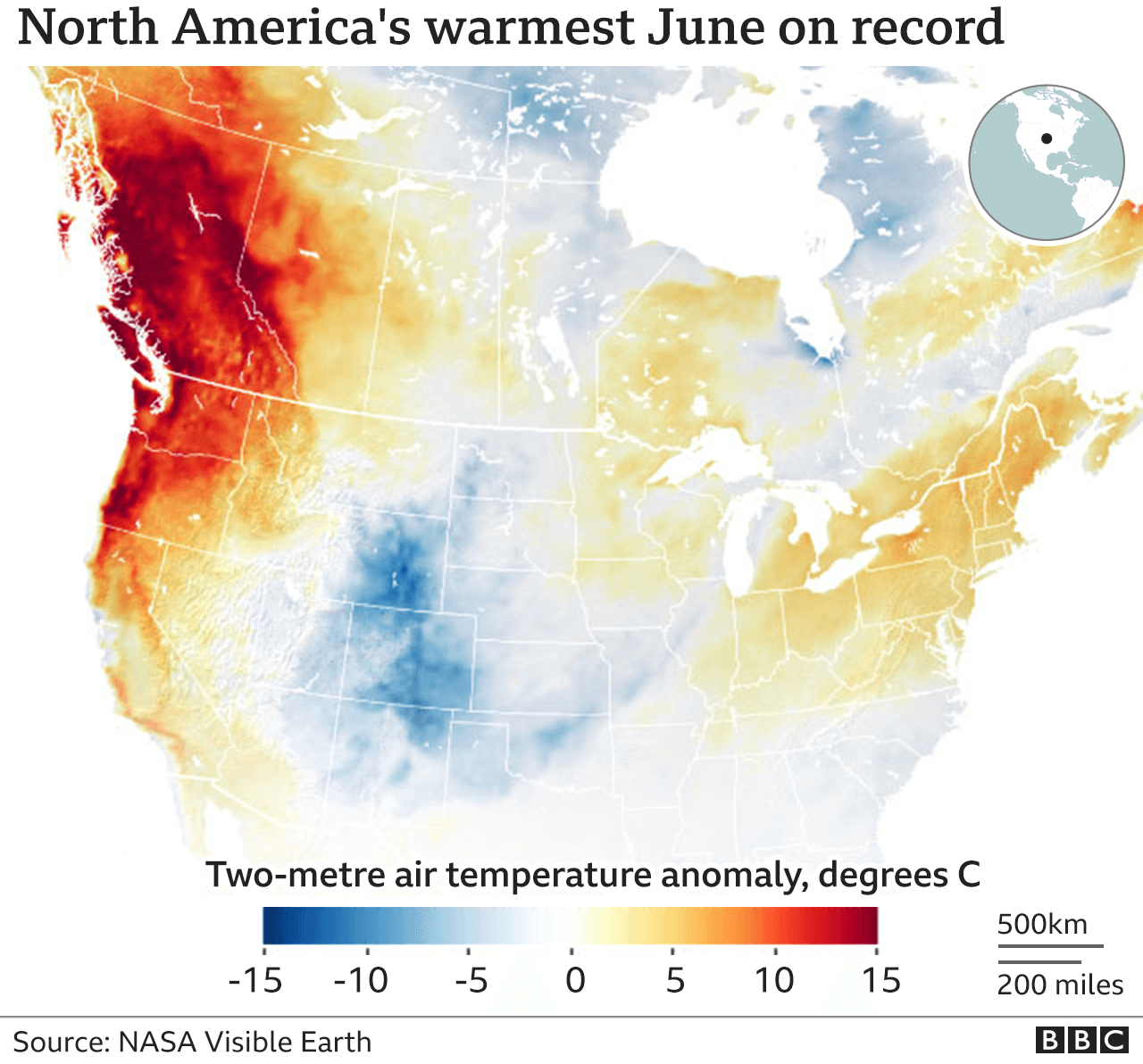
He says what meteorologists like him find shocking is not that the world is experiencing more heatwaves but that temperature records are increasingly being broken by such large margins.
In Canada and the north-western US, several cities recorded temperatures a full 5 degrees Celsius above previous records.
A Siberian heatwave last year saw temperatures more than 5C above the previous record between January and June.
A study by the Met Office on the extreme heat in the Russian region found that reaching such temperatures was almost impossible without human-caused climate change.
It anticipates similar results from studies of the Canadian heatwave.
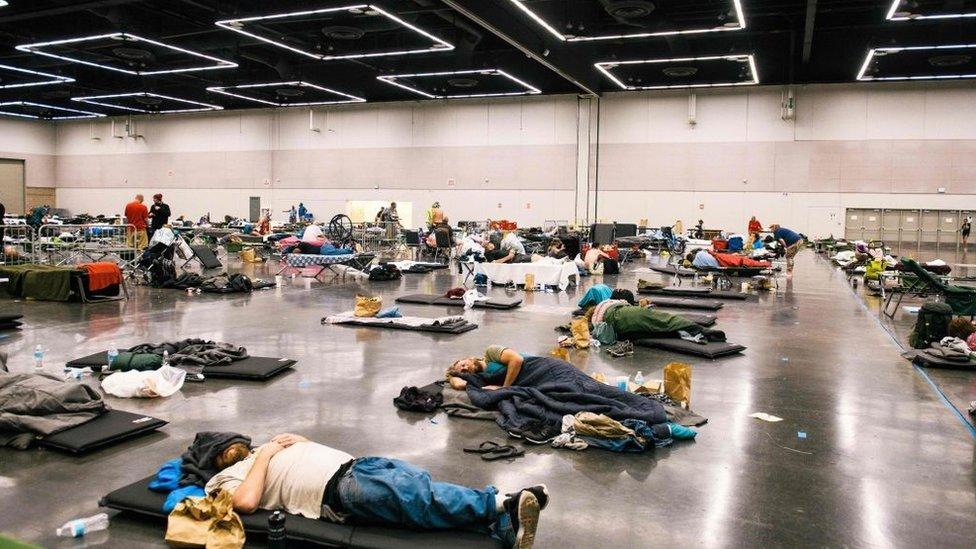
Portland residents flocked to cooling centres amid the recent heatwave
Its initial calculations suggest the odds of the sort of temperatures experienced in Canada occurring without climate change are very low indeed, says Professor Stott.
"It is telling us that changes in average climate are leading to rapid escalation not just of extreme temperatures, but of extraordinarily extreme temperatures," he adds.
That is exactly what the science says we should expect, Prof Friederike Otto of the Environmental Change Institute at Oxford University told the BBC.
"Every decade the world has increased the rate of greenhouse gas emissions and that has increased the rate of warming. So, of course, heat records are being broken more frequently," she maintains.
Prof Otto believes the risks from the increasing number of heatwaves the world now experiences is not taken seriously enough.

The UK has also been experiencing soaring temperatures
Storms and flood provide dramatic before-and-after images and cause widespread damage to property.
Heatwaves, by contrast, do not leave a trail of destruction in their wake. Prof Otto describes them as "silent killers".
"People rarely drop dead on the street, but die quietly in their poorly insulated and un-air-conditioned homes."
Indeed, how many victims these events claim is often only apparent months after the event when statisticians can calculate excess mortality.
Prof Otto says even if we do manage to achieve the dramatic reductions in greenhouse gas emissions that many countries around the world are now committed to, we will still see more frequent and more intense heatwaves than we have today.
She advises that, alongside cutting carbon emissions, we should be investing in adaption and resilience to ensure our communities can withstand the higher temperatures we can expect in the future.
Related topics
- Published28 June 2021
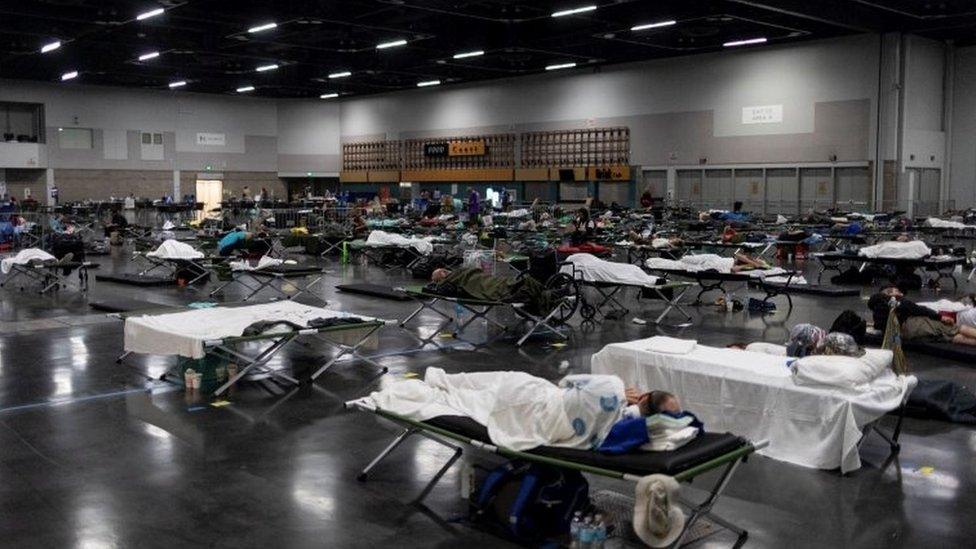
- Published18 June 2021
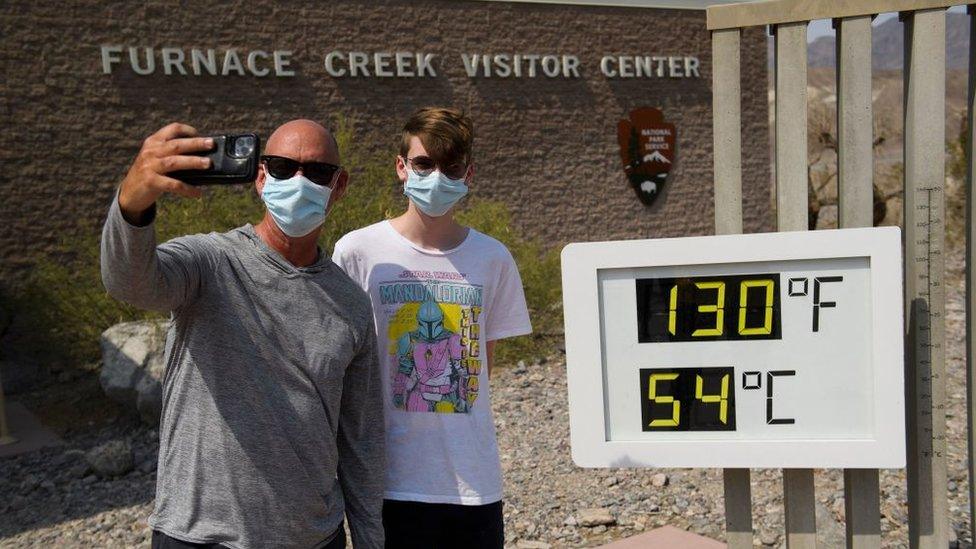
- Published19 August 2020
